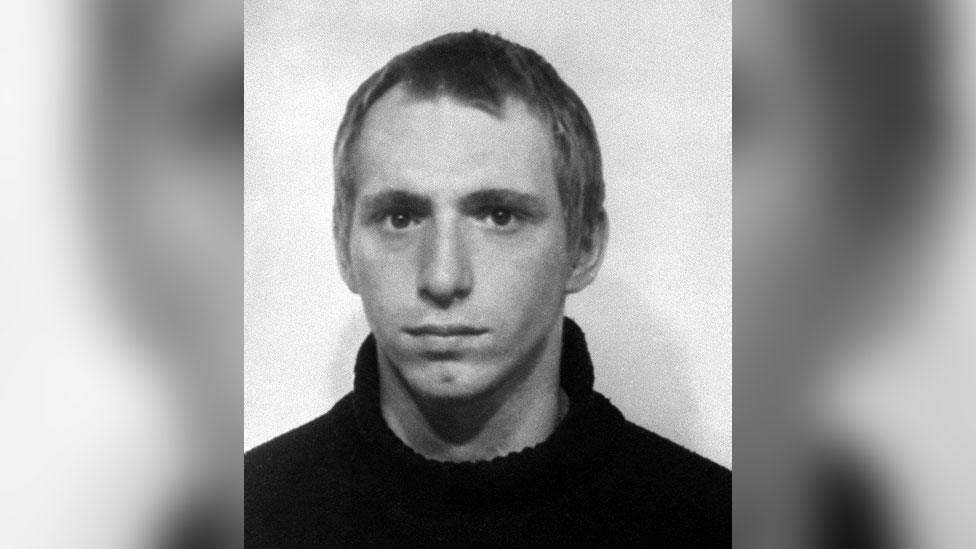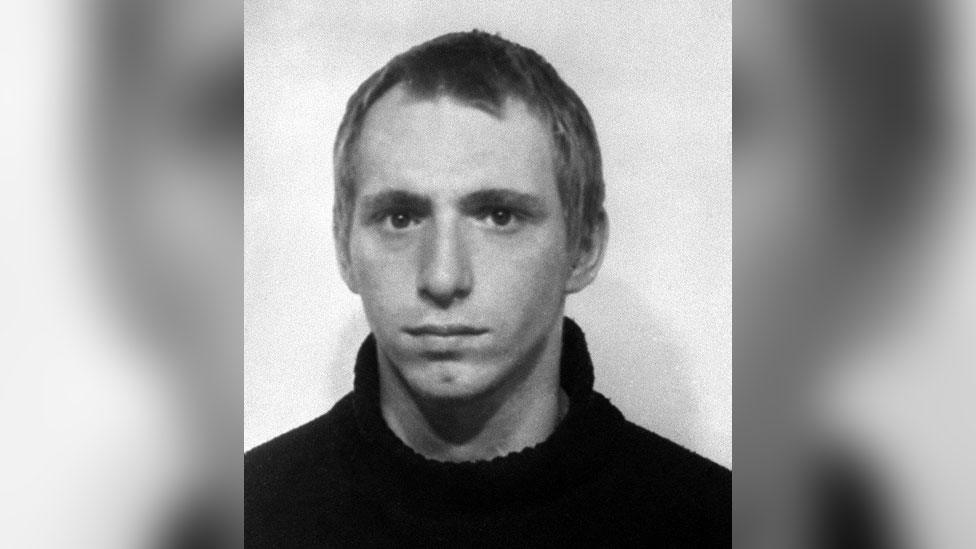Confessed Hull arsonist Peter Tredget in new appeal over 26 deaths
- Published

Peter Tredget has been detained in a secure mental hospital since 1981
A man who confessed to causing 26 deaths in arson attacks in Hull in the 1970s was an "unreliable narrator", the Court of Appeal has heard.
Peter Tredget had pleaded guilty to 11 counts of arson and 26 counts of manslaughter between 1973 and 1979.
The 61-year-old is now appealing against his convictions following a referral from the Criminal Cases Review Commission.
He has been detained in a secure mental hospital since 1981.
At a previous Court of Appeal bid in December 1983, judges upheld most of his convictions, but they quashed one count of arson and 11 charges of manslaughter in relation to a fire at an old people's home in Hessle in 1977.
Tredget's barrister, Tim Barnes QC, said at the time of his confession in 1980 he was an "unreliable narrator" and no "credence" should be given to his guilty pleas.
"Absent the confession, there is simply no evidence which would have led to this appellant being charged, let alone to him being convicted," he said.
Tredget, previously known as Bruce Lee and Peter Dinsdale, had been on a "substantial" alcohol "bender" before his arrest and first police interview in June 1980, which was conducted without a solicitor or a "responsible adult" present.
In written submissions, Mr Barnes added Tredget's "low IQ, learning difficulties, personality disorder and other personal characteristics which existed at the time of the confessions and at the time of trial undermine the credibility of the confessions and the pleas".
He told the court that expert analysis of Tredget's written confessions taken down by police revealed they contained passages that were "completely rewritten" by a senior officer.
'Does not fit facts'
The court heard Tredget had denied responsibility for the fires for the last 35 years and had previously been assessed as being "semi-paralysed down the right side", with a "withered" arm and a limp.
"The degree of physical dexterity required to access some of these properties, carrying a container of paraffin and setting the fires in the way the prosecution allege, would have been extremely difficult if not impossible for someone with such physical disabilities," Mr Barnes said.
He noted there was no identification or forensic evidence to connect his client with any of the fires and said experts concluded, with the exception of one blaze, it was "impossible...to exclude an accidental cause of each of the fires".
He told the court the detail of some of Tredget's confessions "just does not fit with the facts as we know them".
He said a fire at Gowthorpe, in which a 13-month-old baby died, would have involved his client travelling for two hours by train and on foot from a children's home in the evening.
He pointed out a five-year-old in the building had admitted to police he had been playing with matches and had set fire to papers in a cupboard under the stairs.
"The confessions to the police are lacking in the kind of particular detail which would strengthen their credibility," Mr Barnes added.
"Where the confessions did not marry up with the information known to the police, [Tredget] made further confessions correcting his first account and confirming the police information."
The hearing is due to last two weeks, with the Crown challenging the appeal.

Follow BBC East Yorkshire and Lincolnshire on Facebook, external, Twitter, external, and Instagram, external. Send your story ideas to yorkslincs.news@bbc.co.uk, external.
- Published28 October 2019
